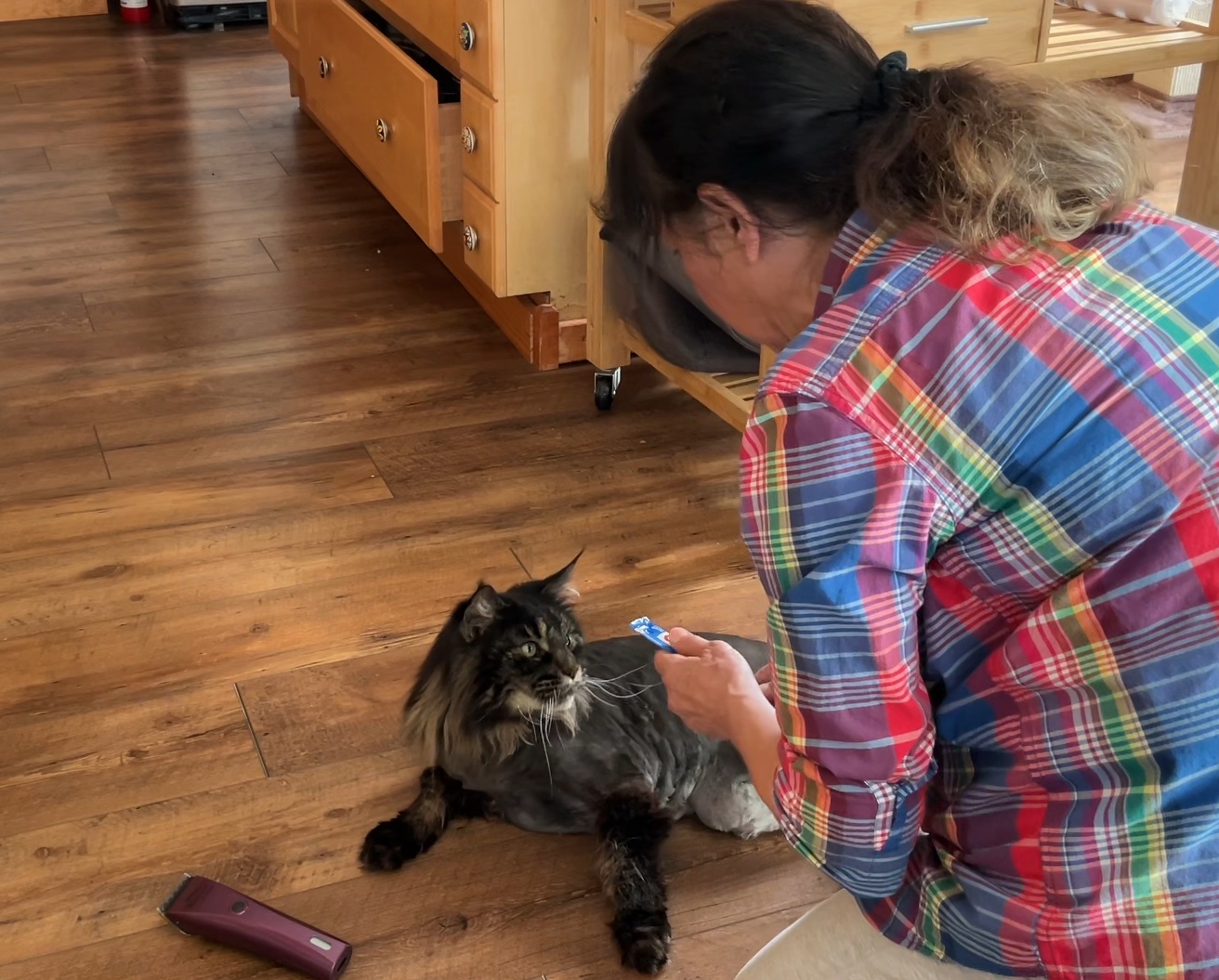 The idea of being able to talk to animals appeals to many people. The famous Dr. Doolittle, the central character in a series of children’s books, preferred animals to people and was able to talk to animals in their own languages. Nowadays, there are people who bill themselves as animal communicators and will “talk” to your animal for a fee.
The idea of being able to talk to animals appeals to many people. The famous Dr. Doolittle, the central character in a series of children’s books, preferred animals to people and was able to talk to animals in their own languages. Nowadays, there are people who bill themselves as animal communicators and will “talk” to your animal for a fee.
It is not uncommon in western cultures for people to talk to their pets (in human language) and some scientific studies indicate that your cat or dog is listening to you. But do they understand what you are saying? Should you talk to your cat?
If you don’t talk to your cat, who will?
Cats Recognize Their Owners’ Voices
A 2013 study observed cats’ behavior to voice recordings of strangers followed by those of the their owners. The cats showed a stronger response (ear movement and head movement) when they heard their owners’ voices. (Reference 1).
Cats Learn the Names of Their Companion Cats
Still another study measured the response of house cats to the spoken names and pictures (on a computer) of familiar cats in their environment. In a second experiment, the house cats were presented with spoken names and pictures of human members of their household. The house cats were able to match their companion cats’ names and faces and to a lesser extent, matched their human family members’ names with faces (Reference 2).
Cats Know When Their Owners are Talking to Them
A 2023 study found that cats reacted more quickly to a human experimenter (stranger) using a visual cue or a combination of visual and vocal cues than vocal cues alone (Reference 3). A later study found that cats discriminated between speech directed to adult humans (Adult Directed Speech or ADS) versus speech directed to themselves (Cat Directed Speech or CDS) when spoken by their owners – they did not distinguish between ADS and CDS spoken by strangers. These findings indicates that cats may put more emphasis on vocal cues with familiar humans but favor visual cues with strange humans.
How do We Talk to Our Cats?
When talking to pets and young children, people tend to speak more distinctly, use shorter phrases and sentences, and repeat things more often. Charlotte De Mouzon found that both men and women speak in a “higher” voice (higher pitch) in CDS compared to ADS (Reference 3).
Should you Talk to yOur Cat?
Cats respond to people, particularly their caregivers, talking to them. Cats appear to know their own names and possibly those of the humans they live with. Talking to your cat helps establish a relationship that is unique to you and your cat.
The jury is still out as to how much of what we say can be understood by our cats but cats can be trained to perform a given behavior in response to a verbal cue. When working with cats, I tend to default to a combination of verbal cues and hand gestures, although recently I have been verbally labeling more and more of what I do with my cats as I am doing it. For example, I have been naming their head and shoulders as I put on their harnesses to prepare for going out for the morning walk.
This seemed to pay off the other day when I was shaving my Maine Coon, Zelda. I touched her right side and told her if she would lay on her side, then I would give her some Churu treat. She laid down on her right side and then, looked up meaningfully at the Churu I had in my hand. Time to pay up!
Scientific studies indicate that cats recognize their owners’ voices and possibly the names of other humans in the household. Vocal communication may be part of the closer cat-owner relationship while cats favor visual cues when interacting with strange humans. So, talk to your cat in whatever language you speak – your cat is listening!
references
- Saito A, Shinozuka K. Vocal recognition of owners by domestic cats (Felis catus). Anim Cogn. 2013 Jul;16(4):685-90. doi: 10.1007/s10071-013-0620-4
- Takagi, S., Saito, A., Arahori, M. et al. Cats learn the names of their friend cats in their daily lives. Sci Rep 12, 6155 (2022). https://doi.org/10.1038/s41598-022-10261-5
- de Mouzon, C.; Leboucher, G. Multimodal Communication in the Human–Cat Relationship: A Pilot Study. Animals 2023, 13, 1528. https://doi.org/10.3390/ani13091528
Want to keep up with the world of cats? Subscribe to The Feline Purrspective!

